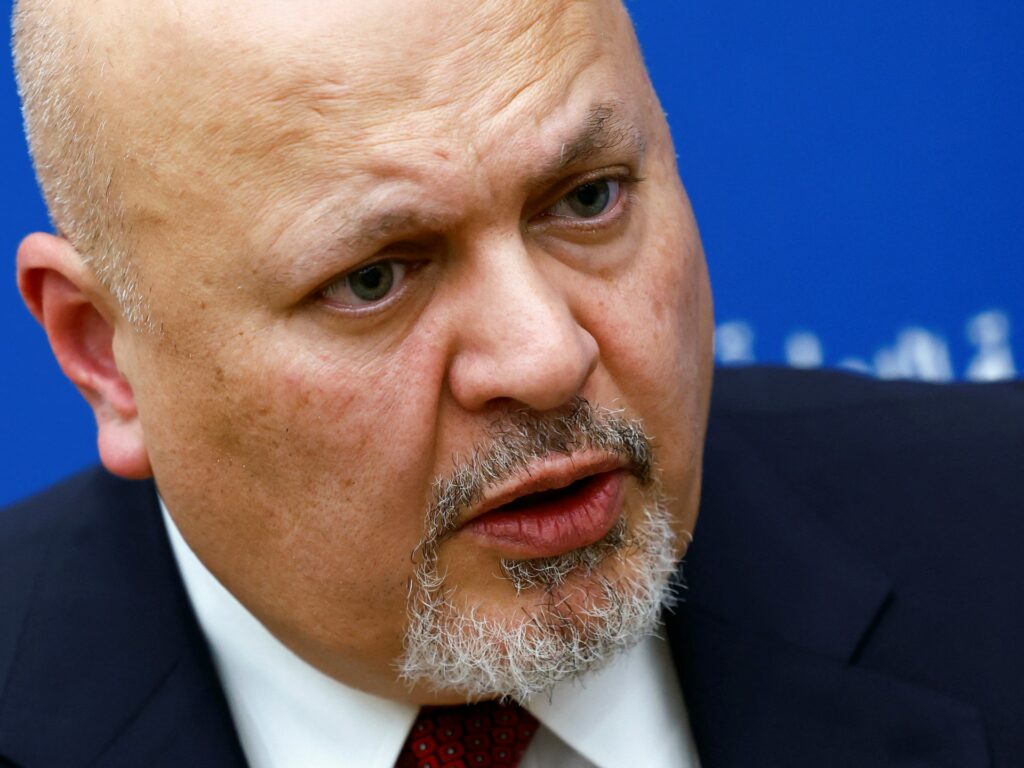Global Reaction to ICC Prosecutor Seeking Arrest Warrants for Israel, Hamas Leaders
The International Criminal Court (ICC) chief prosecutor, Karim Khan, has taken a bold step by applying for arrest warrants against top Israeli and Hamas leaders for alleged war crimes. This move comes in response to the Hamas-led attack on southern Israel and the subsequent war on Gaza by Israel.
Khan stated that there are “reasonable grounds” to believe that Israeli Prime Minister Benjamin Netanyahu and Defence Minister Yoav Gallant bear “criminal responsibility” for war crimes and crimes against humanity. Additionally, arrest warrants were sought for three Hamas leaders – Yahya Sinwar, Ismail Haniyeh, and Mohammed Diab Ibrahim al-Masri (Deif) – for similar charges.
Here are some reactions to this significant announcement:
Israeli Prime Minister Benjamin Netanyahu condemned the ICC decision, calling it a disgrace and an attack on Israel. He vehemently rejected any comparison between Israel and Hamas, labeling the latter as mass murderers.
Israeli President Isaac Herzog expressed outrage at the attempt to draw parallels between terrorists and a democratically elected government. He stated that such comparisons are unacceptable.
Israeli Finance Minister Bezalel Smotrich likened the ICC prosecutor’s actions to Nazi propaganda, highlighting the hypocrisy and hatred directed towards Israel.
Hamas denounced the ICC’s decision, accusing Khan of trying to equate the victim with the executioner. The group demanded the cancellation of the arrest warrants.
On the other hand, the Government Media Office in Gaza welcomed the ICC’s decision to seek arrest warrants for Israeli leaders while also denouncing the move to apply for warrants against Hamas leaders.
Various Palestinian officials and international figures have weighed in on the matter, with some supporting the ICC’s decision and others expressing concerns about the implications of seeking arrest warrants for both Israeli and Hamas leaders simultaneously.
The United Kingdom, United States, and several European countries have expressed reservations about the ICC’s decision, with some officials calling it non-comprehensible and outrageous.
In contrast, human rights organizations such as Human Rights Watch have welcomed the ICC’s decision, emphasizing the need for accountability for atrocities committed in Israel and Palestine.
Overall, the global reaction to the ICC prosecutor’s move reflects the complex and contentious nature of the Israeli-Palestinian conflict and the challenges of seeking justice and accountability in such a volatile region.
#World #reacts #ICC #prosecutor #seeking #Israel #Hamas #arrest #warrants
Analysis of Key Points
- The ICC prosecutor has applied for arrest warrants against Israeli and Hamas leaders for alleged war crimes, citing crimes committed during the October 7 attack on southern Israel and Israel’s subsequent war on Gaza.
- Israeli Prime Minister Benjamin Netanyahu and Defence Minister Yoav Gallant are accused of “war crimes and crimes against humanity,” while three Hamas leaders are also facing arrest warrants.
- Reactions to the announcement vary, with Israeli officials condemning the decision as an attack on Israel and Hamas denouncing the attempt to equate victims with perpetrators.
- International responses range from support for the ICC’s decision to criticism of the perceived lack of balance in targeting both Israeli and Hamas officials.
- The UN special rapporteur on the right to housing believes charges against Israeli leaders are likely to stick, while Human Rights Watch welcomes the ICC’s decision as a step towards accountability for atrocities.
Long-Term Implications and Future Developments
The ICC’s decision to seek arrest warrants against Israeli and Hamas leaders has the potential to impact the ongoing conflict between Israel and Palestine in significant ways. It could lead to increased international scrutiny of alleged war crimes and human rights violations committed by both parties, potentially setting a precedent for accountability in future conflicts.
Furthermore, the arrest warrants could affect diplomatic relations between Israel and the international community, as well as within the region. The response from key players such as the United States, the United Kingdom, and other European countries will be crucial in shaping the outcome of this development.
Future developments may include legal proceedings against the accused leaders, potential backlash from affected parties, and efforts to bring about a resolution to the conflict through international intervention and dialogue.
Actionable Advice
Based on these insights, it is important for all parties involved to approach the situation with a commitment to justice, accountability, and a peaceful resolution to the conflict. Diplomatic efforts should be intensified to prevent further escalation of violence and to address the root causes of the conflict.
International organizations, governments, and civil society groups should continue to support the ICC’s investigation and ensure that victims of war crimes and human rights abuses in Israel and Gaza have access to justice and redress.
Dialogue and negotiations should be prioritized to find a sustainable solution to the conflict, addressing the legitimate concerns and grievances of both Israelis and Palestinians. It is essential to uphold international law, human rights, and humanitarian principles in all efforts towards peace and reconciliation.

